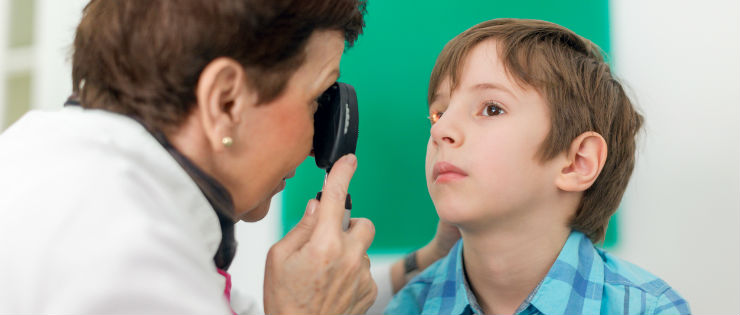
It’s perfectly normal for babies to have a crossed eye. While they are learning to focus correctly, their eyes will wander. After the first few months, they can start to focus on objects, so their eyes begin to work together.
What If My Child’s Eyes Keep Crossing?
If your child’s eyes are still crossing past the four-month mark, it is best to speak to your doctor. Some children with crossed eyes will have strabismus where both eyes don’t look in the same spot at the same time.
Some babies are born with strabismus, but it usually develops in early childhood and is detected between one and four years of age.
It can be caused by the muscles around the eye or the nerves that supply the eyes with information from the brain. Children with down syndrome or cerebral palsy are more likely to have strabismus. If there is a family history of strabismus, a child is more at risk of developing than a child with no history of the condition.
When one or both eyes wander or turn:
- inward it’s called esotropia or cross-eyed
- outward is exotropia
- up is hypertropia
- down is hypotropia
An undiagnosed case of strabismus can develop into amblyopia or lazy eye. This condition can cause blurry vision, double vision and depth perception (seeing in 3D) which can become permanent.
When the eyes are looking in different directions, the brain receives two images. The confusion for the brain means it starts to ignore the image from the crossed eye so the vision can become permanently reduced in that eye. Strabismus can be treated with glasses, vision therapy or eye surgery.
Don’t Delay
Early treatment will lead to the best long-term outcome if your child has strabismus. Even if you are not sure if your child’s eye is crossed, mention it to your doctor at your next visit.
Regular eye checks are important for young children as they don’t know if they are experiencing problems with their vision. Children will assume they see the world the same as the rest of the population. They may tilt their head or squint to try and see better without realising. Eye problems can lead to difficulties at school so children should have an eye check before starting or during their first year at school.
If you think there may be a problem with your child’s eyesight, see your doctor.
HIF Optical
Look after your eyes with HIF’s Optical Insurance. Members enjoy generous discounts on lenses, frames and contact lenses from in-store and online suppliers.